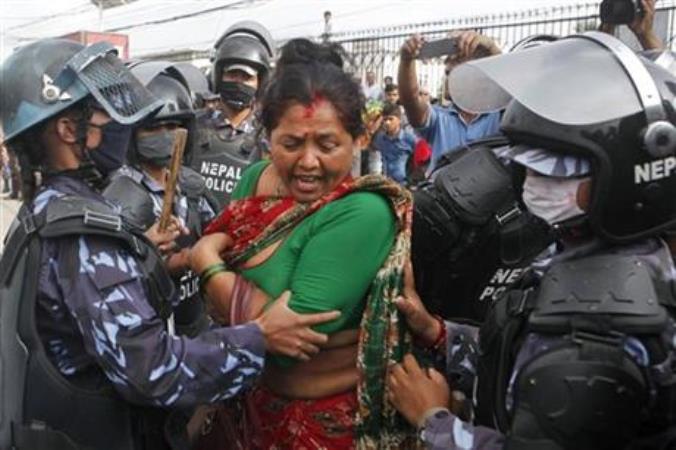
Police in southern Nepal opened fire Tuesday on members of an ethnic group demanding a new state in a draft constitution, killing five people in two separate towns, officials said.
Police official Kamal Singh Bam said protesters in Birgunj town were violating a curfew order and attempting to attack the police station when officers opened fire, killing four. The town is about 160 kilometers (100 miles) south of the capital, Kathmandu.
Another protester was killed in Kalaiya town, just east of Birgunj, when residents there also violated curfew orders imposed to stop violent demonstrations.
The ethnic Madhesi protesters want a state named after their group in the area where they live.
There have been a number of recent protests, some violent, by various groups demanding statehood in the draft constitution, which proposes that Nepal be split into at least seven federal states.
Last week, protesters from a different ethnic group killed seven police officers in southwest Nepal.
The ethnic groups say having a separate state would give them a stronger say in local affairs. They have organized strikes and street demonstrations as the new constitution is being finalized by the country's Constituent Assembly.
Nepal has been governed by an interim constitution for years. A Constituent Assembly elected in 2008 failed to draft a new charter in four years because of disagreements among political parties, and a second assembly was elected in 2013.
There has been pressure on the politicians to speed up the drafting process since an earthquake in April killed thousands of people.
The main political parties now agree that there should be seven federal states, but smaller political parties and ethnic groups oppose either the number or makeup of the states.
In Kathmandu, hundreds of Hindu protesters clashed with police in front of the assembly building Tuesday.
Police fired a water cannon and tear gas at the protesters. No one was hurt but the protest blocked traffic for many hours.
Nepal was declared a secular republic after its centuries-old monarchy was abolished in 2008. The monarchs who ruled Nepal promoted Hinduism, and were believed by some to be a reincarnation of the Hindu god Vishnu.
Hindu groups are now demanding that the Himalayan nation again be declared a Hindu state in the new constitution.
